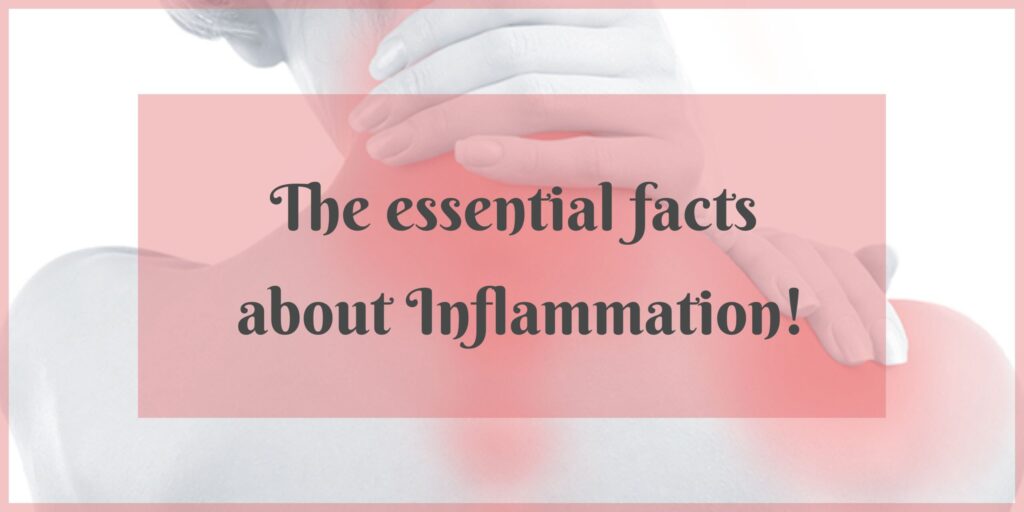Causes of inflammation
The causes of inflammation, along with symptoms, prevention, and treatment, are unravelled sedulously in this post. When your body is subjected to a virus, bacteria, or harmful material, your immune system may go overdrive. The first to come are inflammatory cells and cytokines, which are substances that drive the growth of further inflammatory cells. These cells initiate an inflammatory response to capture bacteria and other pathogens or to begin mending wounded tissue. As a result, you may have discomfort, swelling, bruising, or redness. However, inflammation has an impact on biological systems that are not visible.
Acute inflammation and chronic inflammation are two distinct forms of inflammation. Acute inflammation is the body’s reaction to a quick injury, such as a cut finger. Your body releases inflammatory cells to the wound to help it heal. The mechanism of healing begins with all these cells.
When your body persists in generating inflammatory cells despite when there is no external threat, this is known as chronic inflammation. Inflammatory cells and chemicals assault joint tissues in the case of rheumatoid arthritis, causing an inflammation that appears and disappears and may inflict serious harm to joints, including pain and deformity.
Symptoms of inflammation
In addition to generating pain or discomfort at the injury site, acute inflammation can occasionally cause the skin to appear flushed. Moreover, they cause the afflicted region to become heated and swollen.
Chronic inflammation symptoms might be more difficult to recognise than acute inflammation signs. Indicators of chronic inflammation include stomach and chest discomfort. They include weariness and fever, similar to TB and systemic lupus. In addition, the symptoms include joint pain or stiffness, as well as rheumatoid arthritis. Mouth sores, such as those caused by HIV infection, and skin rashes such as psoriasis are also indications of chronic inflammation.
Lupus is an example of an autoimmune illness in which the body destroys healthy tissue and is one of the causes of inflammation. Chronic inflammation has a role in the pathogenesis of several diseases, including Alzheimer’s, asthma, and cancer. In addition, they contribute to heart disease and ankylosing spondylitis (AS). Diabetes type 2 is associated with persistent inflammation.
Causes of inflammation
Certain components of an individual’s lifestyle might also lead to inflammation in the body. If you drink a great deal of alcohol, you run a greater risk of developing chronic inflammation. One of the causes of inflammation is a high body mass index (BMI) that falls within the parameters for obesity unless such a high BMI is the consequence of a very muscular build.
When you exercise at your peak intensity for a longer amount of time or when you don’t exercise for long enough, inflammation can also be triggered. If you are under constant stress, inflammation will develop. Inflammation is a consequence of cigarette smoking. The causes of inflammation include toxic exposure, such as pollution or industry pollutants.
In certain instances, inflammation may not require treatment. In many cases, the discomfort associated with acute inflammation can be reduced in a few days with rest, ice, and good wound care.
If you have chronic inflammation, your physician may recommend the following treatments: Supplements: It has been demonstrated that some vitamins, including vitamins A, C, and D, and supplements, such as zinc, can reduce inflammation and enhance healing. Injections of steroids and nonsteroidal anti-inflammatory drugs (NSAIDs) are two other options.
Prevention
You may choose to consume foods that lower inflammation in your body. You may choose to increase your intake of anti-inflammatory foods such as fatty fish such as mackerel, salmon, and sardines. Leafy greens, like spinach and kale, may assist in reducing inflammation levels. Both consuming tomatoes and cooking with olive oil are good lifestyle decisions.
It is conceivable that excessive consumption of some foods might exacerbate inflammation. If you suffer from chronic inflammation, eliminating fried foods, especially many fast-food items, may help you feel better. Avoid eating cured meats containing nitrates, such as hot dogs. Avoid consuming oils that have been too refined and trans fats. Sugar, cakes, and white bread are examples of refined carbohydrates you should avoid. Acute inflammation that has gone untreated, such as that caused by an illness or injury, is entailed in the causes of inflammation.
By maintaining healthy lifestyle behaviours, you can reduce your risk of chronic inflammation. These comprise attaining and maintaining a healthy weight and avoiding or stopping smoking. Exercise at least three to five times a week, and ideally daily. Your daily alcohol consumption should not exceed 2 ounces, and utilise healthy stress management techniques such as meditation and journaling.



